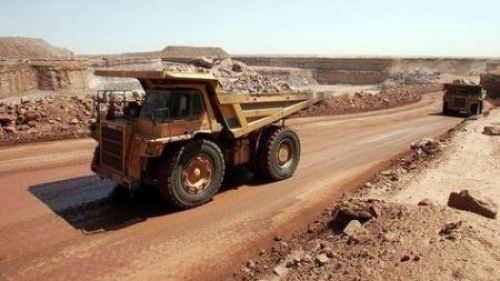Mining

Cautious optimism as FG lifts ban on Zamfara mining

DAMILOLA AINA sheds light on several complex and interrelated issues surrounding the revocation of mining exploration licenses in Zamfara State and the global resurgent demand for gold
The recent announcement by the Federal Government, through the Ministry of Solid Minerals Development of lifting the ban on mining exploration in Zamfara State has triggered reactions akin to the explosive force of a dynamite blast, attracting diverse comments. This decision has been met with both praise and concerns from stakeholders and investors in the mining sector.
Many have commended the move, recognising its potential to stimulate economic growth and investment and also stressed the urgent need for the implementation of robust security measures to ensure the safety of operations and personnel in the region, which security challenges have plagued in recent years.
The Nigerian mining sector, particularly in Zamfara state, has long experienced both opportunities and challenges. With abundant mineral resources, especially gold, the region has the potential to significantly contribute to the nation’s economic development.
However, the surge in illegal mining activities and the associated security and environmental risks have hindered this potential for years. In 2019, the government imposed a ban on mining exploration activities in Zamfara in response to escalating violence, environmental degradation, and criminal activities linked to illegal mining.
The government ending the five-year restriction said the decision was taken after careful observation and significant improvements in the security situation in the gold-rich and terrorist-ravaged state.
Announcing the development at a press briefing, the Minister of Solid Minerals Development, Dr Dele Alake, highlighted the economic potential of Zamfara, known for its abundant reserves of gold, lithium, and copper.
He noted that while the 2019 ban was intended to address security issues, it inadvertently created opportunities for illegal miners to exploit the nation’s resources.
“The existential threats that necessitated the ban have been largely mitigated, thanks to intelligence-driven security operations that have neutralised key bandit commanders,” Alake said.
He added that Zamfara’s mineral wealth has the potential to boost national revenue significantly.
The former Lagos commissioner said that the decision had brought formal activities in the state mining sector to a total halt, leaving the field to illegal operators.
“The concomitant result was the colossal loss of revenue to the affected communities, local government, the state, and the federal government, as legitimate miners were forced to shut down operations,” he reasoned.
Zamfara State is one of the largest gold-producing regions in Nigeria, with vast gold deposits scattered across the state’s landscape, which has attracted both legal and illegal miners to the region over the years.
However, it is the illegal mining activities that have largely dominated, with artisanal miners, often operating without permits, exploiting the state’s gold resources, leading to a range of challenges for the state and the country.
The PUNCH recalls that the state had been overrun by illegal mining operations and banditry, leading to lead poisoning and deaths of over 700 children as reported by ‘Doctors Without Borders.”. Illegal mining has also led to environmental degradation and pollution of several communities’ water sources.
This was compounded by banditry activities that had overwhelmed the security architecture of the state, leading to the displacements of several communities.
Armed groups, sometimes referred to as “bandits,” have exploited the chaotic situation by targeting miners, extorting money from them, and engaging in kidnappings and other criminal activities. These groups have been funded in part by the proceeds of illegal mining operations. As a result, Zamfara became one of the epicentres of Nigeria’s security crisis.
The unregulated extraction of gold has also led to severe environmental degradation, including deforestation, land erosion, and contamination of water sources due to the use of toxic chemicals like mercury. These activities have not only destroyed local ecosystems but have also made the land unsuitable for farming, affecting the livelihoods of local communities who depend on agriculture for sustenance.
But commenting on the restoration of economic activities in the mining pits, the National President, Miners Association of Nigeria, Dele Ayanleke, welcomed the move, highlighting the financial losses incurred during the ban.
He stated that insecurity and banditry, which led to the ban, had also resulted in unnecessary budgetary allocations being wasted to maintain peace in the area.
Ayanleke, in a chat with our correspondent, said, “We are grateful to the Honourable Minister, Dr Oladele Alake, for his efforts to lift the five-year ban on mining activities in Zamfara State.












